By Stephanie Hemmert
This past February, I had the privilege of attending and teaching at the Training 2016 Conference, which was held in Orlando, Florida by the Training Magazine Network. This was the first time I had attended this conference. This article includes some of my reflections on the meeting.
Training Magazine Network sent out a call for presenters in spring 2015, which caught my eye. I had seen a similar call a few years prior and had intended to submit something, but ended up being outrun by time. This go around I decided to try for it. I had a class in mind (“Identifying and Reducing Decision Making Biases”) that I’ve taught around the country to mostly court staff and some judges for a number of years now and felt the content and design were well honed. The submission deadline was mid-June. Much to my delight, at the end of July I received an invitation to teach my session at what they called a “hands on clinic.” By being a presenter, Training Magazine then waived the registration fee for me to attend the three-day conference. I was psyched, and after clearing it with my agency, I was ready to go!
The conference structure I found rather typical. It offered preconference certification programs, there were plenary keynote speakers, well over a hundred breakout sessions, “future forums,” dinner roundtables, “town halls,” and a large expo. Participants hailed from over 1,000 different organizations. I suspect most were from private companies, though there were non-profit and government entities represented as well.
Something I had never seen before at an educational conference is that they had a live band in the plenary room that played right before and after the keynote sessions. They played very well, but they were loud. LOUD! So very loud it was difficult to hear the person sitting next to me speak. (I must be getting old!) So what they gained in getting the participants’ energies psyched up, they may have lost in participants individually connecting with each other. Nevertheless, the music was rockin’!
The keynote sessions were neuroscientist and engineer Greg Gage of Backyard Brains; “The Gentleman Thief” Apollo Robbins; Jay Shuster, Production Designer at Pixar on “Behind the Scenes at Pixar”; and Welby Altidor, Executive Creative Director at Cirque du Soleil on “Creative Courage.” They each spoke for 45 minutes and I thought it was interesting that the conference billed two on each day, right after one another with a very quick break in between. (Greg Gage and Apollo Robbins back to back and then Jay Shuster and Welby Altidor back to back.) One of the biggest nuggets I enjoyed from the keynotes was Jay talking about “failing forward” and how learning happens in so called mistakes. Good stuff!
It was a challenge to pick breakout sessions to attend! They were mostly only offered once and the conference had about 15 sessions running concurrently. Talk about pressure! It was exciting, though, to have such an array of choices. The sessions I chose included “Experiential Micro Learning: Aligning Content across Multiple Levels of Bloom’s Taxonomy;” “Competencies, and Competency Modeling Done Right;” “Aspire to be a Positive Deviant;” and “Using Brain Science to Improve Learning Design.” I particularly gained a lot from the Brain Science/Learning Design session, which was led by Art Kohn, a cognitive neuroscientist who focused on specific ways to present information that maximize learning and memory. I loved Art’s emphasis on the trainer’s responsibility for providing context to learners and for providing boosts afterwards to cement the learning and encourage behavior change.
If you are curious about the sessions, materials from the conference are posted here. I encourage you to poke around! If you are curious about the conference in general, I encourage you to read reactions and posts from the conference through the Twitter feed.
As for my session, it was so much fun leading it! I had a small group of 18 participants. I am proud to say each one was engaged. We had a great dialogue and the participants embraced the interactivity. I think I gained almost 18 new “LinkedIn” friends, too.
The 2017 conference will be January 30 through February 1 in San Diego. If you are thinking you would love to attend and possibly teach, I recommend registering on the Training Magazine Network website, to become a member and sign up for their email notifications. If you submit a proposal, let me know how it goes! You will also find out about the vast number of free, periodic webinars they offer through regular email messages. If you can’t attend a webinar live, they often give you the option of viewing the archive at a later time.
 Stephanie Hemmert, a Senior Judicial Education Attorney, works with the Federal Judicial Center, a judicial branch agency whose primary mission is education and research for the federal courts. Prior to law school, Stephanie worked in the insurance industry in underwriting and training capacities. All views expressed are her own.
Stephanie Hemmert, a Senior Judicial Education Attorney, works with the Federal Judicial Center, a judicial branch agency whose primary mission is education and research for the federal courts. Prior to law school, Stephanie worked in the insurance industry in underwriting and training capacities. All views expressed are her own.
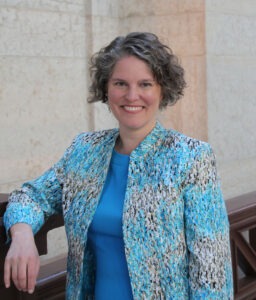
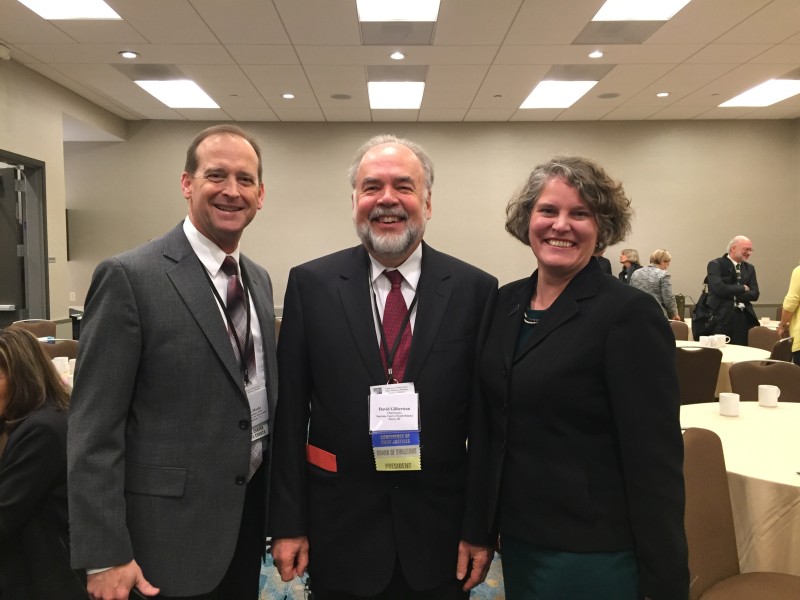
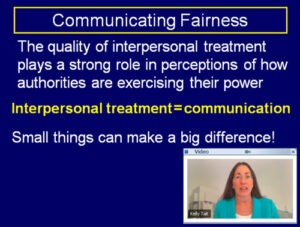 On February 25, 2016, NASJE’s Northeastern Region sponsored a webinar for NASJE members entitled Procedural Fairness for Court Staff: A Brief Curriculum for Teaching, facilitated by Kelly Tait, Immediate Past President of NASJE, and Joan Bishop, NASJE Northeastern Region Director. About 55 people participated in the webinar. It was a very quick-moving and informative exploration of how and why judicial branch educators should include the topic of procedural fairness in education programs for court personnel as well as judges.
On February 25, 2016, NASJE’s Northeastern Region sponsored a webinar for NASJE members entitled Procedural Fairness for Court Staff: A Brief Curriculum for Teaching, facilitated by Kelly Tait, Immediate Past President of NASJE, and Joan Bishop, NASJE Northeastern Region Director. About 55 people participated in the webinar. It was a very quick-moving and informative exploration of how and why judicial branch educators should include the topic of procedural fairness in education programs for court personnel as well as judges.

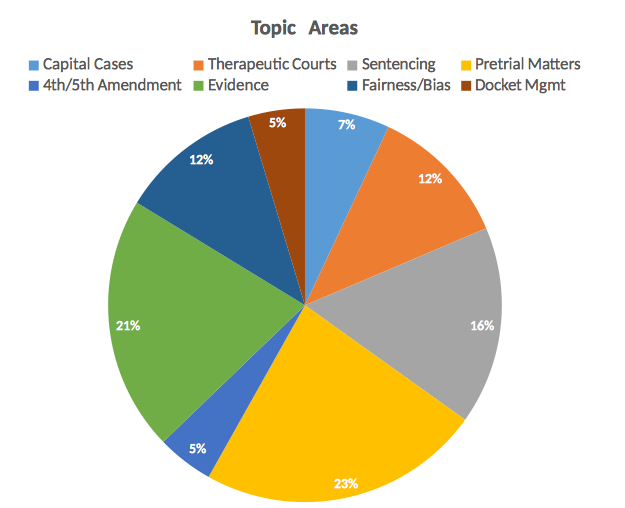
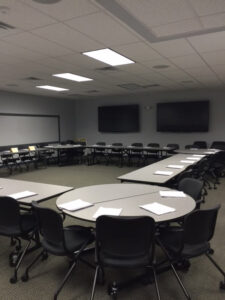 In 2004, judicial education became mandatory for Nebraska judges, probation and Court staff. In 2005, judicial branch education staff were hired, and in 2006 the program was designed and launched. The funding for the mandatory judicial education program came from “dollar filing fees” meaning a dollar from every filing fee received was directed towards the program. The fund receives approximately $374,000 per year which has not been a tremendous budget for growing a program.
In 2004, judicial education became mandatory for Nebraska judges, probation and Court staff. In 2005, judicial branch education staff were hired, and in 2006 the program was designed and launched. The funding for the mandatory judicial education program came from “dollar filing fees” meaning a dollar from every filing fee received was directed towards the program. The fund receives approximately $374,000 per year which has not been a tremendous budget for growing a program.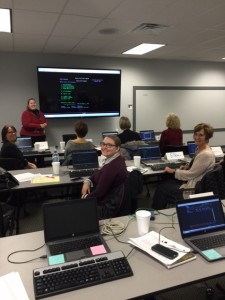 While Carole misses her old historic office setting, she’s enthusiastic about her new modern home equipped with state of the art technology. The training center has four training rooms, all equipped with 90” screen video TVs that are networked but can also operate autonomously, there is a retractable curtain to partition the rooms for quick accommodation, and significant acoustics attributed to the top-notch speaker system.
While Carole misses her old historic office setting, she’s enthusiastic about her new modern home equipped with state of the art technology. The training center has four training rooms, all equipped with 90” screen video TVs that are networked but can also operate autonomously, there is a retractable curtain to partition the rooms for quick accommodation, and significant acoustics attributed to the top-notch speaker system.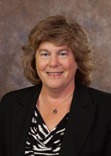 About Carole McMahon-Boies
About Carole McMahon-Boies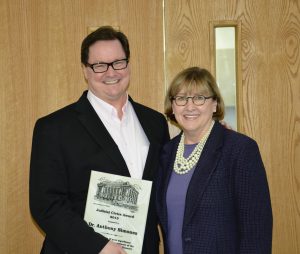
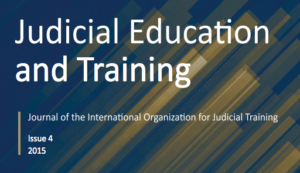 The International Organization for Judicial Training (IOJT) recently announced the publication of the fourth issue of
The International Organization for Judicial Training (IOJT) recently announced the publication of the fourth issue of